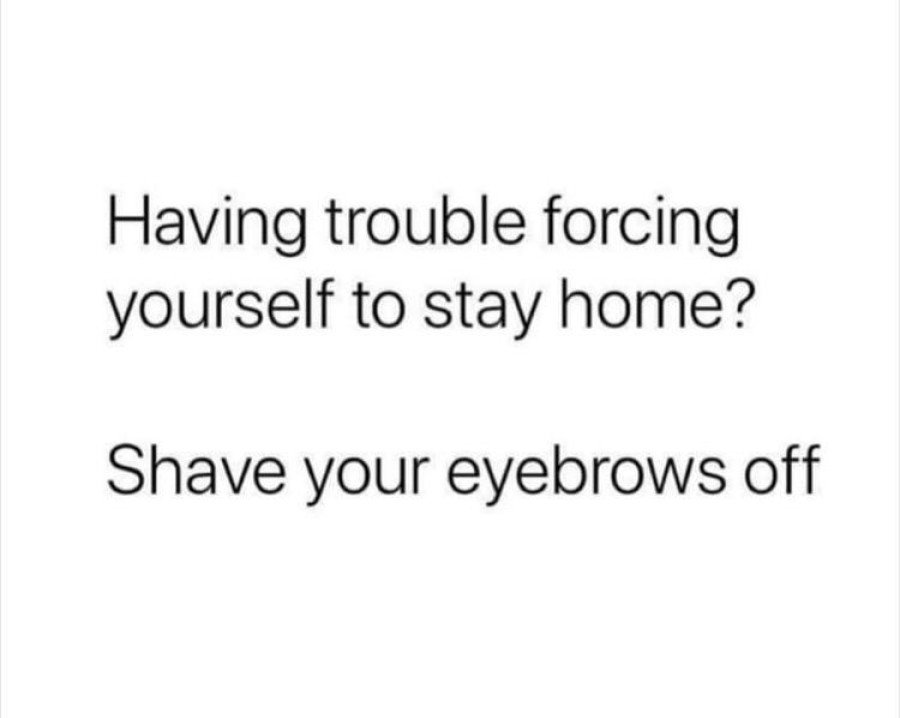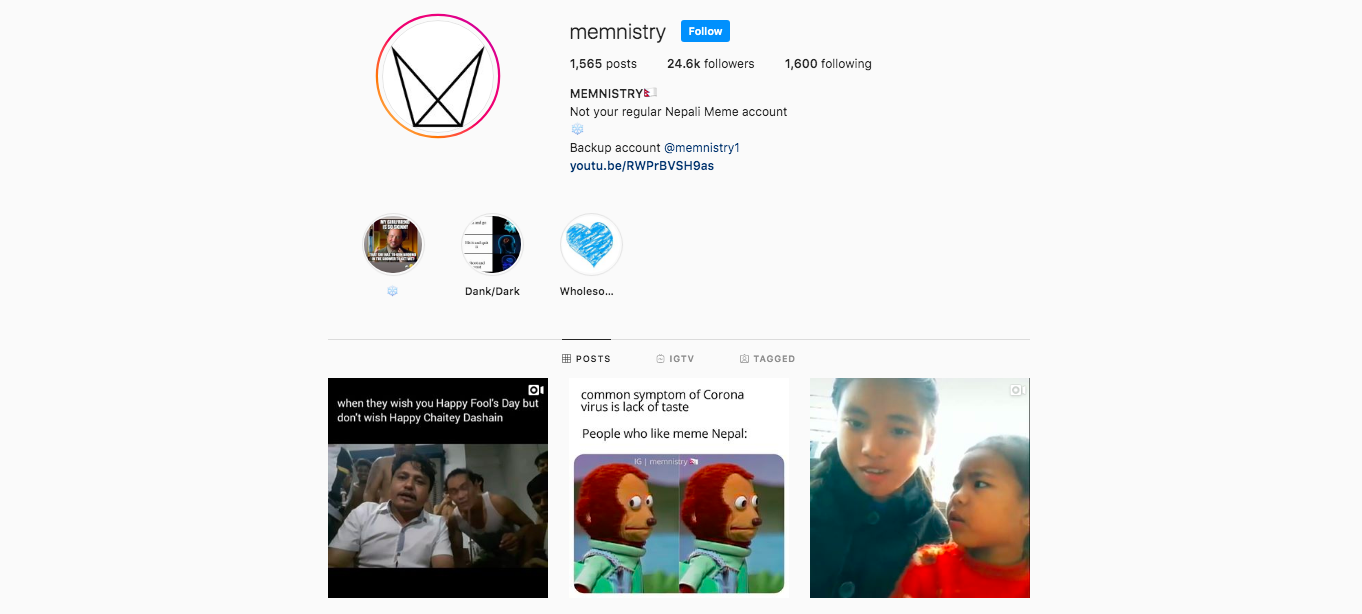Culture & Lifestyle
Memes to the rescue
While the pictures littered all over social media might seem inane, many are finding them the only way to stay sane while in lockdown.
Tsering Ngodup Lama
Ever since the government imposed a lockdown across the country on March 24, 20-year-old Pema Sherpa has left home only twice to buy vegetables. Not used to staying indoors for prolonged periods, with limited social interaction, Sherpa says the lockdown is making him anxious.
“It’s not just me. Most of my friends are stressed with all these restrictions. To keep ourselves distracted and to make each other laugh, we constantly share memes with each other,” says Sherpa. “I have been scanning dozens of meme pages on different social media platforms looking for funny memes to laugh at and share with my friends. These are stressful times, and a little dose of laughter serves us good.”
Governments across the world have placed their countries under lockdown to curb Covid-19’s spread, but several studies and surveys have shown that the lockdown may have a negative impact on people’s mental health. During the first week of government-imposed lockdown in Italy, one of the worst hit countries, a survey was conducted on its impact on mental health. Ninety-three percent of participants mentioned experiencing at least a little anxiety, 42 percent indicated a clear drop in mood and 28 percent said they were not sleeping well. More recently, a study conducted by Kings College London revealed life under lockdown can negatively affect mental health.
“The lockdown has disrupted our normal routine, severely restricted our social lives, and on top of that, the rapid spread of the virus and the ever-increasing death toll is causing fear and worry among people,” says Dr Prabhakar Pokhrel, a consultant psychiatrist at Rhythm Neuropsychiatry Hospital and HAMS Hospital. “In such a scenario, people are bound to feel anxiety and fear, and worry about their own safety and the safety of loved ones. When human beings find themselves presented with unpleasant situations where they have very little control over, we find ways with which we can distance our mind from the situations.”

For Sherpa and his friends, memes have become that tool for distraction. One of Sherpa’s favourite memes is one that says: “Having trouble forcing yourself to stay home? Shave your eyebrows off.”
“I know coronavirus can cause serious illness, and the lockdown is essential to flattening the curve, but it’s also nice to make fun of the current situation in a way it lightens your heart,” says Sherpa.
Twenty-year-old Osheen Shah says that, ever since the lockdown began, she has started sharing a lot of memes on social media. “Since I have nothing to do apart from staying home, I have started spending a lot of my time on social media surfing for memes. At the back of my mind, I am still worried about all that’s going on, but since there’s nothing I can do about it, I might as well laugh at memes and share laughter,” says Shah. “In the last few weeks, I have started sharing a lot of memes on my social media accounts, mostly sarcastic memes. I share what I think will help people laugh at and keep their minds off with what’s going on right now.”
Humour, says Pokhrel, is a defense mechanism humans deploy to deal with stressful situations. “It’s natural for us to seek anything that would make us laugh, especially when dealing with stressful situations. After all, humour is a great coping mechanism,” he says.
And for many like Sherpa and Shah, memes are their source of laughter. One of Shah’s favourite meme pages is Memnistry, a Nepali Instagram account dedicated to memes. Fifty-seven percent of the page’s followers are between the ages of 18-24, according to the account’s admin, a 21-year-old who asked not to be named. And the account’s engagement has seen a spike since the lockdown started.
“Apart from engagement, I have also seen a spike in the number of new followers. Earlier, my average weekly new followers were 500, but between March 17 and March 23, I gained 878 new followers,” he said. “For those of us in their late teens to mid-20s, going through memes and sharing them with our friends and followers on social media platforms has become our way of dealing with stressful times. Funny memes have gone on to become our source of humour that makes us feel good when everything else around us makes us feel the exact opposite.”




 21.82°C Kathmandu
21.82°C Kathmandu















